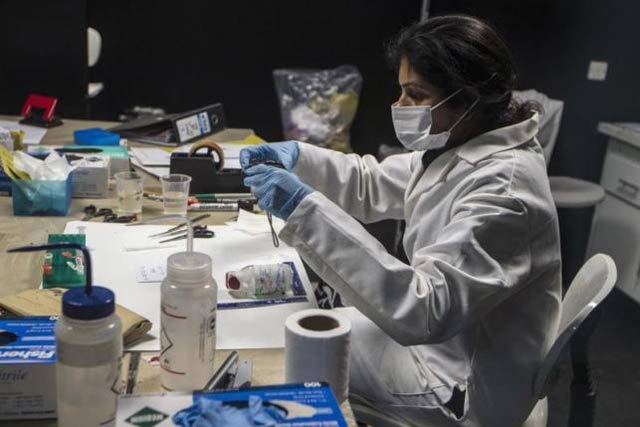
The project will be completed within a year.
According to the concept papers of the project, the project is a part of ventures being undertaken by the Home Department for the establishment of a modern and unified Forensic Science Agency (FSA) in Punjab.
The main objective of this project is to establish an international standard, well-equipped and state-of-the-art forensic training laboratory.
Once completed, the laboratory will provide training to working forensic scientists and newly recruited scientists. Police, prosecution, judiciary, medico legal officers and other civil and military law enforcement officials will go through the training process.
Sindh police want forensic laboratory to bolster investigations
The lab will assist the legal system in dispensation of justice and other legal matters. It will work within the framework of the Punjab Forensic Science Agency Act, 2007.
The paper further stated that oral evidence has inherent problems of “fabrication, lying and forgetting.”
The facility will bring a paradigm shift from oral evidence to physical evidence with reliability and authenticity on international standards. The aim is to improve success rate and the deteriorating image of investigating organisations.
It will also build the capacity of PFSA to train the staff of different departments in the field.
In 2009, 32 master trainers were sent to the USA on a six-month programme which cost the provincial government an estimated Rs90 million.
After completing the training, these scientists passed their skills on to new recruits.
Moreover, the PFSA imparted training to other organisations in Punjab and all the other provinces. Even the National Forensic Science Agency of Islamabad was among the organisations that went through the learning process.
Apart from its own staff, the PFSA has trained 120 scientists from the health and agriculture departments. There are also plans for the agency to train about 250-300 scientists who would be hired for the Punjab Agriculture, Food and Drug Authority (PAFDA).
Providing healthcare: JSMU to open six new lab collection points across Karachi
The establishment of the laboratory will further enhance the capacity of PFSA to train forensic scientists. The period for certification in forensic training varies from two to three years.
The laboratory will initially analyse and cover toxicology, narcotics and DNA samples obtained from biological specimens left at crime scenes.
The Firearms Tool Marks Unit of the laboratory will comprise of examiners and physical science technicians. They will examine all incoming evidence related to firearms, firearm components, ammunition, ammunition components, tools and tool marks.
The Trace Chemistry Unit will be analysing a wide variety of evidence. For example, debris from an explosion or a fragment of an explosive device can be used to identify which type of explosive might have been used. Paint and glass from a hit-and-run accident or a burglary can be compared to see if proof left at the scene can be tied to a suspect.
Numerous other types of evidence such as hair and fibre will also be analysed by the unit.
Moreover, the laboratory will also train crime scene specialists on technical inspection of all types. This will allow them to work with medical examiners to obtain and document information on deaths.
Published in The Express Tribune, July 15th, 2017.
1732762837-0/Taylor-(3)1732762837-0-405x300.webp)
















COMMENTS
Comments are moderated and generally will be posted if they are on-topic and not abusive.
For more information, please see our Comments FAQ